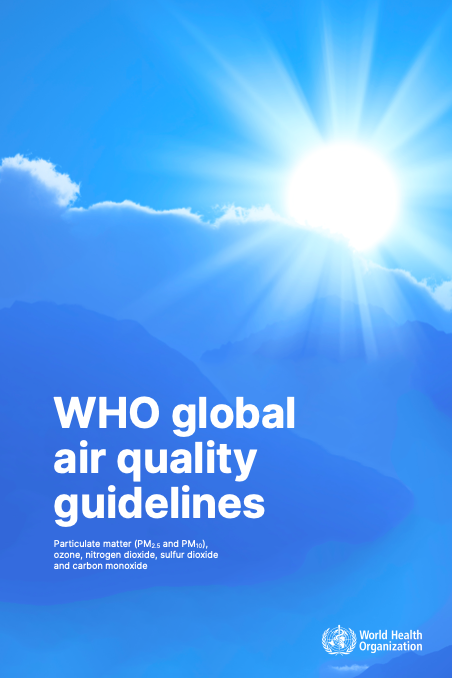Hazardous Chemicals
Description
Including acids; caustic substances; disinfectants; glues; pesticides; solvents; flame retardants; polychlorinated biphenyls (PCBs); fluorides; and persistent organic pollutants (POPs).
Share this Subissue on:LinkedIn
Resources
WHO Global Air Quality Guidelines
This comprehensive guide was created by the World Health Organisation (WHO) for policy-makers, lawmakers, and technical experts, including industrial stakeholders and environmental impact assessment practitioners. It was created to offer quantitative, health-based recommendations for air quality, with the ultimate goal of providing guidance that can help to reduce the burden of pollutants on health worldwide. It provides specific recommendations on a range of air pollutants, including particulate matter, ozone, nitrogen and sulfur dioxide, carbon monoxide, and more. It also provides recommendations for implementation, monitoring, and evaluation of the guidelines.
Air pollution data portal
The WHO's Air Pollution Data Portal can help you to quickly access data and databases, factsheets, interactive tools, and key publications on ambient and household air pollution.
Strategic Approach to International Chemicals Management (SAICM) Knowledge Platform
The Strategic Approach to International Chemicals Management (SAICM) is a policy framework created to promote chemical safety around the world. Their strategic approach focuses on risk reduction; knowledge and information; governance; capacity-building and technical cooperation; and illegal international traffic. SAICM is an excellent source if you want to take a deep dive into issues related to hazardous chemicals. They have an expansive library of articles, videos, reviews, databases, e-learning resources, reports, and more on topics related to chemicals, and they lead communities of practice on a range of cross-cutting themes.
Stockholm Convention on Persistent Organic Pollutants
The Stockholm Convention on Persistent Organic Pollutants is a multilateral environmental agreement to protect human health and the environment from such harmful chemicals. This site is your one-stop shop for learning more about POPs. It provides essential information on initial and newly identified POPs; reports and decisions from the Convention; and brochures, leaflets, fact sheets, guidance manuals, and other publications.
Toxic waste, explained
This primer can help familiarise you with the topic of toxic waste, including common sources, regulations, and management.



